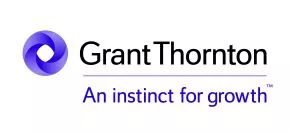On May 31, 2016, Manitoba Finance Minister Cameron Friesen tabled the province's 2016-17 budget. The first budget of the new government projects deficits of $1.012 billion for the 2015-2016 fiscal year and just under $890 million for the 2016-17 fiscal year, with a view towards balancing the budget within eight years.
The budget includes $1.8 billion for strategic infrastructure funding for roads and bridges, flood protection, hospitals, schools, universities and colleges, as well as municipal infrastructure, and the tools necessary for the creation of a single access point for municipal programming within the provincial government.
There are no new taxes or tax increases proposed in the budget, although there are a variety of different tax measures. The following is a summary of those measures.
Business tax measures
Corporate tax rates
There are no changes to the $450,000 small business limit or the small business and general tax rates. The tax rates for 2016 are summarized in Table A below:

Manitoba Interactive Digital Media Tax Credit
The Manitoba Interactive Digital Media Tax Credit (MIDMTC) will be reviewed to consider enhancements to the eligibility criteria, in particular, for larger digital media companies that establish a significant job-creating presence in Manitoba. This refundable tax credit is equal to 40 percent of the remuneration paid to Manitobans on eligible projects approved by the Department of Growth, Enterprise and Trade.
Small Business Venture Capital Tax Credit Program
The Small Business Venture Capital Tax Credit Program (SBVCTC), scheduled to expire on December 31, 2016, will be extended three years to the end of 2019. The province will be reviewing the tax credit program parameters to improve accessibility for Manitoba companies.
Green Energy Equipment Tax Credit
This refundable tax credit is targeted at the production and purchase of machinery and equipment used to generate renewable energy in Manitoba. Geothermal heating equipment is currently eligible for a maximum 15 percent credit and solar thermal heating equipment is eligible for a 10 percent credit. The budget proposes to expand the eligibility for the 15 percent credit to include gasification equipment and equipment for co-generation of energy using biomass fuel in respect of equipment installed in Manitoba and used in a business.
Personal tax measures
Personal income tax rates
No changes are proposed to personal income tax rates.
Table B illustrates the combined 2016 federal-provincial top marginal rate of tax on various types of income:

Indexing of personal income tax brackets
The province's personal income tax brackets will begin to be indexed to the rate of inflation, effective for the 2017 and subsequent tax years. Indexation in the first year will be based on the Manitoba Consumer Price Index (CPI) for the 12-month period from October 2015 to September 2016. The index factor used for the 2017 tax brackets will be known by November 2016.
Indexing of the basic personal exemption amount
The province's basic personal exemption amount (currently $9,134 for 2016) will be increased in 2017 by the Manitoba CPI for the 12-month period from October 2015 to September 2016. Like the personal income tax brackets, this amount will continue to be indexed in subsequent years. The new indexed amount for 2017 will be known by November 2016.
Other personal measures
Seniors' school tax rebate
The maximum seniors' school tax rebate will remain at $470 for eligible seniors for the 2016 and subsequent property tax years. However, the rebate will now be calculated based on the net school taxes paid after the Basic and Seniors' Education Property tax credits are taken into account. In addition, the rebate will be income-tested and will be reduced by two percent of net family income for senior households over $40,000 and will be delivered as part of the annual income tax return. Administration of the rebate through the income tax system will permit retroactive claims of up to three years, but no earlier than the 2016 rebate.
Eligible seniors below the $40,000 income-tested threshold will still be eligible for a full rebate depending on net school tax paid, but senior households with a family net income of $63,500 and over will no longer receive the rebate. The average senior household will see a reduction in the rebate as a result of these changes from approximately $400 in 2015 to $300 in 2016.
The content of this article is intended to provide a general guide to the subject matter. Specialist advice should be sought about your specific circumstances.

